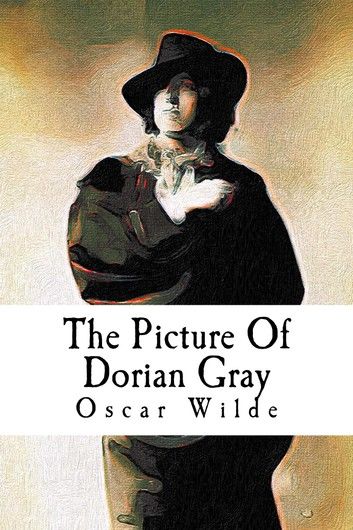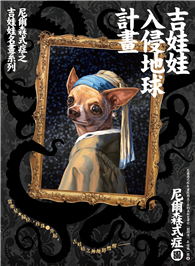| FindBook |
有 1 項符合
The Pictures Of Dorian Gray的圖書 |
 |
The Pictures Of Dorian Gray 作者:Oscar Wilde 出版社:Mauro Liistro Editore 出版日期:2015-10-04 語言:英文 |
| 圖書館借閱 |
| 國家圖書館 | 全國圖書書目資訊網 | 國立公共資訊圖書館 | 電子書服務平台 | MetaCat 跨館整合查詢 |
| 臺北市立圖書館 | 新北市立圖書館 | 基隆市公共圖書館 | 桃園市立圖書館 | 新竹縣公共圖書館 |
| 苗栗縣立圖書館 | 臺中市立圖書館 | 彰化縣公共圖書館 | 南投縣文化局 | 雲林縣公共圖書館 |
| 嘉義縣圖書館 | 臺南市立圖書館 | 高雄市立圖書館 | 屏東縣公共圖書館 | 宜蘭縣公共圖書館 |
| 花蓮縣文化局 | 臺東縣文化處 |
|
|
The Picture of Dorian Gray begins on a beautiful summer day in Victorian era England, where Lord Henry Wotton, an opinionated man, is observing the sensitive artist Basil Hallward painting the portrait of Dorian Gray, a handsome young man who is Basil's ultimate muse. While sitting for the painting, Dorian listens to Lord Henry espousing his hedonistic world view, and begins to think that beauty is the only aspect of life worth pursuing. This prompts Dorian to wish that the painted image of himself would age in his stead.
Under the hedonist influence of Lord Henry, Dorian fully explores his sensuality. He discovers the actress Sibyl Vane, who performs Shakespeare plays in a dingy, working-class theatre. Dorian approaches and courts her, and soon proposes marriage. The enamoured Sibyl calls him "Prince Charming", and swoons with the happiness of being loved, but her protective brother, James, a sailor, warns that if "Prince Charming" harms her, he will kill Dorian Gray.
Dorian invites Basil and Lord Henry to see Sibyl perform in Romeo and Juliet. Sibyl, whose only knowledge of love was love of the theatre, forgoes her acting career for the experience of true love with Dorian Gray. Disheartened at her quitting the stage, Dorian rejects Sibyl, telling her that acting was her beauty; without that, she no longer interests him. On returning home, Dorian notices that the portrait has changed; his wish has been realised, and the man in the portrait bears a subtle sneer of cruelty.
Dorian Gray observes the corruption recorded in his portrait, in the film The Picture of Dorian Gray (1945).
Conscience-stricken and lonely, Dorian decides to reconcile with Sibyl, but he is too late, as Lord Henry informs him that Sibyl killed herself by swallowing prussic acid. Dorian then understands that, where his life is headed, lust and good looks shall suffice. In the following eighteen years, Dorian experiments with every vice, influenced by a morally poisonous French novel, a gift received from the decadent Lord Henry Wotton.
[The narrative does not reveal the title of the French novel, but, at trial, Wilde said that the novel Dorian Gray read was À Rebours ('Against Nature', 1884), by Joris-Karl Huysmans.
One night, before leaving for Paris, Basil goes to Dorian's house to ask him about rumours of his self-indulgent sensualism. Dorian does not deny his debauchery, and takes Basil to a locked room to see the portrait, made hideous by Dorian's corruption. In anger, Dorian blames his fate on Basil, and stabs him dead. Dorian then calmly blackmails an old friend, the scientist Alan Campbell, into using his knowledge of chemistry to destroy the body of Basil Hallward.
A 19th century London opium den (based on fictional accounts of the day).
To escape the guilt of his crime, Dorian goes to an opium den, where James Vane is unknowingly present. Upon hearing someone refer to Dorian as "Prince Charming", James seeks out and tries to shoot Dorian dead. In their confrontation, Dorian deceives James into believing that he is too young to have known Sibyl, who killed herself eighteen years earlier, as his face is still that of a young man. James relents and releases Dorian, but is then approached by a woman from the opium den who reproaches James for not killing Dorian. She confirms that the man was Dorian Gray and explains that he has not aged in eighteen years; understanding too late, James runs after Dorian, who has gone.
One evening, during dinner at home, Dorian spies James stalking the grounds of the house. Dorian fears for his life. Days later, during a shooting party, one of the hunters accidentally shoots and kills James Vane who was lurking in a thicket. On returning to London, Dorian tells Lord Henry that he will be good from then on; his new probity begins with not breaking the heart of the naïve Hetty Merton, his current romantic interest. Dorian wonders if his new-found goodness has reverted the corruption in the picture, but sees only an uglier image of himself. From that, Dorian understands that his true motives for the self-sacrifice of moral reformation were the vanity and curiosity of his quest for new experiences.
Deciding that only full confession will absolve him of wrongdoing, Dorian decides to destroy the last vestige of his conscience. Enraged, he takes the knife with which he murdered Basil Hallward, and stabs the picture. The servants of the house awaken on hearing a cry from the locked room; on the street, passers-by who also heard the cry fetch the police. On entering the locked room, the servants find an unknown old man, stabbed in the heart, his face and figure withered and decrepit. The servants identify the disfigured corpse by the rings on his fingers to belong to their master; beside him is the picture of Dorian Gray, reverted to its original beauty.
|










